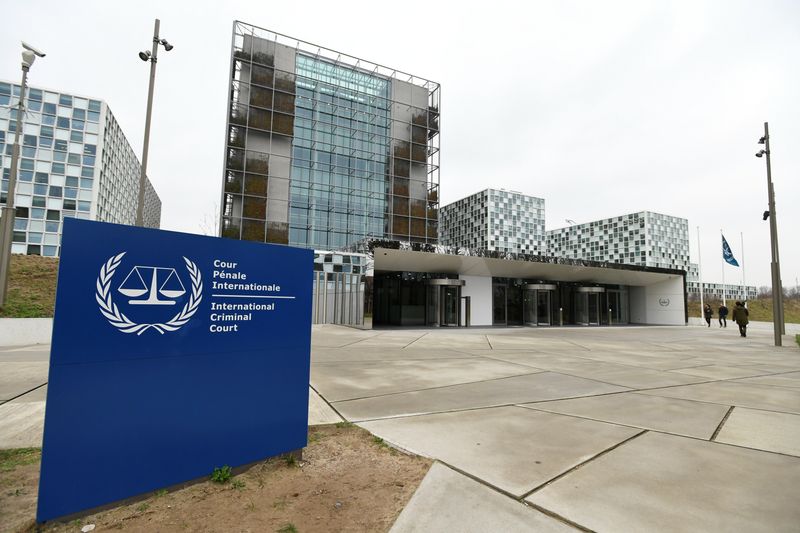By Stephanie van den Berg
THE HAGUE (Reuters) -The International Criminal Court (ICC) has issued arrest warrants for top Russian commanders Sergei Kobylash and Viktor Sokolov for suspected war crimes in Ukraine, it said in a statement on Tuesday.
The ICC, based in The Hague, said there were reasonable grounds to believe that the two were responsible for "missile strikes carried out by the forces under their command against the Ukrainian electric infrastructure from at least 10 October 2022 until at least 9 March 2023".
"All wars have rules. Those rules bind all without exception", ICC Prosecutor Karim Khan said, adding that he would continue to seek cooperation from Russia, which has so far refused to engage with the ICC.
This is the second set of warrants for the arrest of Russian officials related to the war in Ukraine.
Russia's defence ministry did not immediately respond to a request for comment.
In March last year, the ICC issued warrants for the arrest of President Vladimir Putin and Children's Commissioner Maria Lvova-Belova on war crimes charges related to the abduction of Ukrainian children.
Moscow denies war crimes in Ukraine and has dismissed previous ICC war crime arrest warrants as part of a biased Western campaign to discredit Russia. Russian officials say such warrants have little real world impact as Moscow is not a member of the court and neither are other major powers, such as the United States and China.
Kobylash, 58, was the commander of the so-called long-range aviation of the Russian air force at the time of the alleged crimes. Ukrainian military intelligence has said Russian strikes on the densely populated areas in the city of Mariupol were conducted under his command.
Sokolov, 61, was an admiral in the Russian navy who commanded the Black Sea Fleet during the period to which the charges relate, according to the ICC.
Ukrainian President Volodymyr Zelenskiy welcomed the arrest warrants.
"Every Russian commander who orders strikes against Ukrainian civilians and critical infrastructure must know that justice will be served. Every perpetrator of such crimes must know that they will be held accountable," he said on the social media platform X.
The ICC on Tuesday said the attacks on Ukraine's electrical grid caused civilian harm and damage that would have been clearly excessive to any expected military advantage.
Exact details of specific incidents and possible victims have been kept secret to protect witnesses and safeguard the ongoing investigations, the statement added.
ICC Prosecutor Khan visited Ukraine in March last year to investigate Russia's campaign of missile and drone attacks on power plants and other infrastructure that killed hundreds of civilians and left millions with no electricity or water.

The Geneva conventions and additional protocols shaped by international courts say that parties involved in a military conflict must distinguish between "civilian objects and military objectives" and that attacks on civilian objects are forbidden.
The ICC prosecutors also want the charges to label the strikes not only as war crimes but also as crimes against humanity because they say they were part of a state policy of widespread attacks on the civilian population.